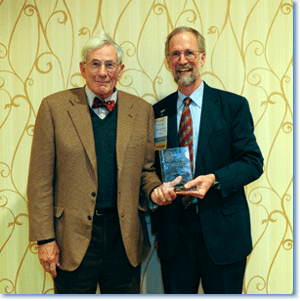 Theodore Roosevelt-Woodrow Wilson Public Service Award
Theodore Roosevelt-Woodrow Wilson Public Service Award
The American Historical Association takes great pleasure in presenting its Theodore Roosevelt-Woodrow Wilson Award for Public Service to Richard Gilder—collector, philanthropist, and activist—on behalf of historical thinking in classrooms and public culture. The Roosevelt-Wilson award honors individuals outside the historical profession who have made a significant contribution to the study, teaching, and public understanding of history.
Richard Gilder has a long and outstanding record of enterprise and accomplishment in promoting historical studies for people of all ages. His enormous contributions to American historical consciousness include the initiation of innovative and widely influential professional development programs for high school history teachers, support for the preservation of Civil War battlefields; major purchases on behalf of historic sites, such as Monticello; establishment of major book prizes reflecting the life, times, and values of George Washington, Frederick Douglass, and Abraham Lincoln; the New-York Historical Society’s annual prize for the best book on American history written for a general audience; and public exhibitions on slavery in the development of New York and on Alexander Hamilton. Gilder and his partner in philanthropy Lewis Lehrman have not only carefully collected more than sixty thousand letters, diaries, maps, pamphlets, printed books, newspapers, photographs, and ephemera that document the political, social, and economic history of the United States. They have generously donated the collection to the Gilder Lehrman Institute of American History, which has placed it on deposit at the New-York Historical Society, where it is accessible to, teachers, students, scholars, and other researchers.
Nearly two decades ago Richard Gilder, a successful New York stockbroker, began building on his lifelong fascination with American history to create a constellation of institutions and programs that advance historical consciousness throughout our society. In 1994 he spearheaded the founding of the Gilder Lehrman Institute of American History. The Institute quickly became a center of resources and professional development opportunities for middle and high school teachers across the nation. It has had a major impact on the teaching of American history in this country, reaching thousands of teachers over the years. Today the Institute sponsors up to forty seminars each summer led by distinguished scholars in a range of fields, and has collaborated with local school districts to provide curricula and expertise for more than a dozen “history high schools” and twenty-six hundred affiliate schools across the country. The Institute also awards an annual prize competition to recognize the National History Teacher of the Year and fifty-two other state winners who teach at the K–12 level.
In 1997 Gilder deepened the impact of his philanthropy on historical scholarship by establishing the Gilder Lehrman Center for the Study of Slavery, Resistance, and Abolition at Yale University. The first center of its kind in the world and now a model for similar research centers internationally, it supports research, scholarship, and public outreach on slavery in its myriad forms (and its legacies) throughout the modern era. In the Center’s first fourteen years Dick Gilder personally has sustained its work with more than ten million dollars.
As he puts it, “Each of these things I’ve been involved in, each one was a job that needed to be done. I could see that there’d be a big job—a job worth doing.”
In her nomination letter, Louise Mirrer of the New-York Historical Society recalls how, shortly after she arrived as provost for the City University system, Dick and Gilder Lehrman Institute President James Basker invited her to meet to discuss a project they had for several years aspired to but could not seem to achieve: an American history-themed high school on the campus of Lehman College, a CUNY school in the Bronx with an extraordinary history department. She explains,
The College administration was unenthusiastic about sharing precious space with high school students; the New York City Board of Education was unenthusiastic about creating a new school into which students had to be “tested.” Equally discouraging was the wider circle of politicians and public citizens who thought that a new, academically-challenging school in the Bronx would never work.
The project began to look hopeless. But Dick’s conviction that “If you have a good idea, it’ll build” turned out to be just right on this occasion, as on so many others. Together we managed to cut through the bureaucracy to develop what is now not only one of the top high schools in New York City, but one of the top high schools in the nation, with a student population that represents the full diversity of New York. Absent Dick, the school never would have had a chance.
David Blight, the director of the Gilder Lehrman Center at Yale, sums it up like this:
Dick Gilder, through the organizations he has helped to forge, has put faith in the very best American historians to take the very best history out as far and wide as possible—to teachers, students, and the broad public. He represents as important a connection as has ever existed between private philanthropy and public history. His resources have indeed allowed many historians to learn just how to become public historians as well as scholars.
The American Historical Association is honored to consider Richard Gilder a leader among our community of scholars. And we are grateful for his work on our behalf.
Awards for Scholarly Distinction
Alfred W. Crosby, professor emeritus of history, geography, and American studies at the University of Texas at Austin, was born in Boston in 1931. He graduated from Harvard College in 1952 and served from 1952 to 1955 in the U. S. Army. After his army service (in Panama) he earned an MAT from the Harvard School of Education and a PhD in history from Boston University in 1961. He taught at Albion College, the Ohio State University, Washington State University, and finally, the University of Texas at Austin. He retired from the University of Texas in 1999.
His dissertation was published as his first book, America, Russia, Hemp, and Napoleon: American Trade with Russia and the Baltic, 1793–1812. Over the years Crosby wrote or edited numerous books that traversed a wide intellectual arena, ranging from the biological and cultural consequences of the Colombian Exchange to the impact of quantification on Western society, and from ecological imperialism to humanity’s insatiable appetite for energy. These books—many of which have been translated into several foreign languages—include The Columbian Exchange: Biological and Cultural Consequences of 1492; America’s Forgotten Pandemic: The Influenza of 1918; Ecological Imperialism: The Biological Expansion of Europe, 900–1900; Children of the Sun: A History of Humanity’s Unappeasable Appetite for Energy; and Throwing Fire: Projectile Technology Through History. Many are now regarded as classics of the field of environmental history that Crosby helped found. Beyond his own work, the book series he co-founded with Donald Worster at Cambridge University Press—Studies in Environment and History—has published some of the most distinguished volumes in the field.
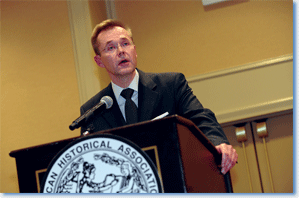 As disparate as the themes he has studied might seem, a broad vision and humanist sensibility have run through all of them, for Crosby placed all of his work within a much larger geographical, chronological, and biological frame than was typical of most of his colleagues. He was in many ways practicing “deep history” long before that phrase was invented. An activist intellectual, Crosby was involved, even in the early stages of his academic career, in the Civil Rights movement, in teaching Black studies, in helping to build a medical center for the United Farm Workers’ Union, and in taking a leadership role in demonstrations opposing the Vietnam War. He also became particularly interested in the histories of oppressed peoples, especially those who had been victimized, economically exploited, or enslaved by European imperialism and capitalism, and sought the roots of that oppression in factors that had generally been largely ignored by historians until recently—especially diseases and environmental biology. His approach to history was in many ways radical, but he was not a Marxist, because, as he himself said, he was not an optimist.
As disparate as the themes he has studied might seem, a broad vision and humanist sensibility have run through all of them, for Crosby placed all of his work within a much larger geographical, chronological, and biological frame than was typical of most of his colleagues. He was in many ways practicing “deep history” long before that phrase was invented. An activist intellectual, Crosby was involved, even in the early stages of his academic career, in the Civil Rights movement, in teaching Black studies, in helping to build a medical center for the United Farm Workers’ Union, and in taking a leadership role in demonstrations opposing the Vietnam War. He also became particularly interested in the histories of oppressed peoples, especially those who had been victimized, economically exploited, or enslaved by European imperialism and capitalism, and sought the roots of that oppression in factors that had generally been largely ignored by historians until recently—especially diseases and environmental biology. His approach to history was in many ways radical, but he was not a Marxist, because, as he himself said, he was not an optimist.
Alfred Crosby is a member of the American Academy of Arts and Sciences, the American Philosophical Society, and the Academy of Finland. We are pleased to add to his many well-deserved honors and distinctions by conferring upon him the AHA’s Award for Scholarly Distinction.
Sheila Fitzpatrick, the Bernadette E. Schmitt Distinguished Service Professor emerita in the Department of History and the College at the University of Chicago, has had a singular impact on the study of modern Russia. It is impossible to write a historiographical essay that would not feature, at its heart, Fitzpatrick’s 1970s revisionism of Cold War Kremlinology or her 1990s studies of everyday life under Stalinism. And it is impossible, even for those who disagree with her, to open their books without references to her arguments. In short, there is no historian in the field of Soviet history who has had more influence for a longer period of time on a broader range of topics than Professor Fitzpatrick.
Sheila Fitzpatrick received her BA degree from the University of Melbourne, and her DPhil from St Antony’s College, Oxford University. Subsequently she was a research fellow at the School of Slavonic and East European Studies, London. She has taught at Columbia University, the University of Texas at Austin, and from 1990 until recently at the University of Chicago.
Fitzpatrick is perhaps best known as the leader of the so-called “revisionist” school of historiography on the Soviet Union, an approach that took as its starting point a conviction that the Soviet regime could not have survived for decades based on top-down, state oppression alone. Challenging an image of a monolithic “totalitarian” regime, Fitzpatrick focused on the social processes from below that enabled the Soviet system to function. In her early work, this entailed early attention to processes of social mobility and the regime’s beneficiaries. In the 1980s, Professor Fitzpatrick developed the notion of “becoming cultured” (kul’turnost’) as key to the socialist worldview. When the Soviet Regime fell, Professor Fitzpatrick was an early pioneer in newly opened archives, and she is renowned for her passion for and commitment to archival sleuthing. Sheila Fitzpatrick’s chief concerns in the 1990s were everyday practices in Stalin’s Russia, including the black market and under-the-counter transactions, patronage and “pull,” the ways people functioned in an economy of shortages and under the stress of the purges. Her three books on the countryside, the cities, and identity (Stalin’s Peasants: Resistance and Survival in the Russian Village after Collectivization; Everyday Stalinism. Ordinary Life in Extraordinary Times: Soviet Russia in the 1930s; and Tear Off the Masks!: Identity and Imposture in Twentieth-Century Russia) strive to understand Soviet life on its own terms but also capture its strangeness.
Sheila Fitzpatrick continues to shape the field of Soviet history (and beyond) today. She has trained generations of graduate students who are now teaching Soviet history around the world. Currently she is also at work on no less than four ongoing projects: studies of Soviet society under Khrushchev and of Stalin’s inner circle; a history of Soviet displaced persons after World War II; and the history of the Australian Left. Fitzpatrick has also given expression to her fine literary voice in her essays in the London Review of Books, and her recent award-winning memoir, My Father’s Daughter.
Sheila Fitzpatrick has received many honors during her career. She is a member of the American Academy of Arts and Sciences and the Australian Academy of the Humanities. She is a past president of the American Association for the Advancement of Slavic Studies. In 2002, she received a major award from the Mellon Foundation for her academic work. It is fitting and appropriate that the AHA confers on her the well-deserved Award for Scholarly Distinction.
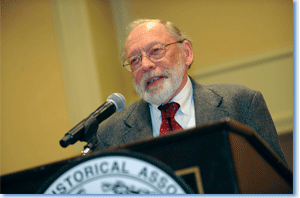 Donald E. Worster is the Joyce and Elizabeth Hall Professor of U.S. History, emeritus at the University of Kansas. A native of Kansas, Worster received his bachelor’s and master’s degrees from the University of Kansas in 1963 and 1964, respectively. He received his PhD from Yale University in 1971 in American history and literature. He taught at Brandeis University, the University of Hawaii and Yale University.
Donald E. Worster is the Joyce and Elizabeth Hall Professor of U.S. History, emeritus at the University of Kansas. A native of Kansas, Worster received his bachelor’s and master’s degrees from the University of Kansas in 1963 and 1964, respectively. He received his PhD from Yale University in 1971 in American history and literature. He taught at Brandeis University, the University of Hawaii and Yale University.
From the beginning of his career, Worster has proven endlessly creative in studying changes in human perceptions of nature, the intellectual and political histories of conservation and environmentalism, and the reciprocal impacts of human beings and the natural world. He has long been regarded as the dean of environmental history, and has been tireless in his advocacy for that emerging field. His books include Nature’s Economy: A History of Ecological Ideas; Dust Bowl: The Southern Plains in the 1930s; Rivers of Empire: Water, Aridity, and the Growth of the American West; The Wealth of Nature: Environmental History and the Ecological Imagination; Under Western Skies: Nature and History in the American West; An Unsettled Country: Changing Landscapes of the American West; A River Running West: The Life of John Wesley Powell; and A Passion for Nature: The Life of John Muir. A Passion for Nature received the Ambassador Award for Biography from the English Speaking Union, while Dust Bowl was awarded the Bancroft Prize, to mention only two of the many honors his books have received.
Worster’s books were focused on the environment, but they were broad, eclectic, and comprehensive—both in their scope and content, and also in their attempts to reach beyond the confines of historical scholarship to a wider readership, even venturing to draw upon historical analysis to warn of future predicaments and dangers. He has been tireless in support of younger scholars, including not just his own students—many of whom have become leading environmental historians in their own right—but many others from whom he has been a generous mentor. The book series he co-founded with Alfred Crosby at Cambridge University Press—Studies in Environment and History—has published some of the most distinguished volumes in the field.
Worster has held fellowships from the Guggenheim Foundation, the Australian National University, the National Endowment for the Humanities, the Andrew W. Mellon Foundation, and the American Council of Learned Societies. He has served as president (1981–83) of the American Society for Environmental History. Worster has been elected to the American Academy of Arts and Sciences and the Society of American Historians. He has received the Distinguished Achievement Award from the Society for Conservation Biology and an honorary doctorate of Humane Letters from Illinois Wesleyan University.
We are pleased today to add to this long list of much-deserved honors that Donald Worster has received, the AHA’s Award for Scholarly Distinction.
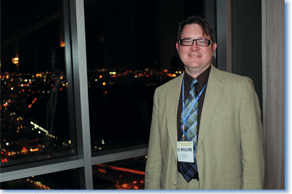 Eugene Asher Distinguished Teaching Award
Eugene Asher Distinguished Teaching Award
The 2012 honoree is Nicholas J. Aieta, Westfield State University. The selection committee writes that his teaching accomplishments and activities, both inside and outside the classroom, are prodigious. He especially focuses on training future history teachers and on history education using multiple and diverse sources. Always available, a mentor to hundreds of students, he is also a resource for his colleagues as he creatively develops strategies for using the multiple sources available in today’s internet-connected world. As a colleague testified, “Nick introduced me to an entire new realm of sources and approaches and made a convert of me. He’s that knowledgeable, that passionate, that persuasive, that good.”
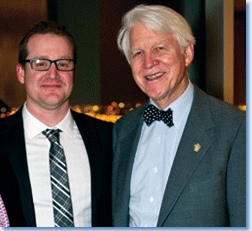 Beveridge Family Teaching Prize
Beveridge Family Teaching Prize
The Beveridge Family Teaching Prize for K–12 teachers goes to two creative teachers: Sol Joye and Malinda Wenze, who teach at Neil Armstrong Middle School in Forest Grove, Oregon. They jointly developed a social media game called “What Would George Washington Do?” that creatively inspired students to learn, to think, and to write. Using cards that described features of Washington’s character as well as articles and primary sources, students were given other cards, at random, that summarized a current event. They were asked to analyze the sources from Washington to evaluate what his response might be to current crises: their answers were not necessarily hagiographic—they were critical as well. These teachers thereby brought the strengths of social media to do critical historical analysis in a fun environment. Based on the students’ responses (some 400 of them) the game served as a great participatory learning device, and got them thinking and interacting with each other as they evaluated each other’s essays. The prize committee encourages the teachers to make the game “public” so that other teachers might benefit from it!
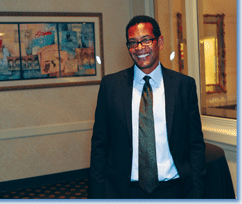 Equity Awards
Equity Awards
Herman Bennett (Graduate Center, City University of New York) for the Individual Equity Award. Bennett is a distinguished historian of Latin America and the African diaspora, he has not only demonstrated his commitment to the recruitment and retention of students of color in the discipline of history, but he has also inspired, advised, and mentored students of color from different departments, graduate programs, and universities. As letters of support from his graduate students underscored, “working with Dr. Bennett is not for the faint of heart. He is rigorous and intense.” Indeed, one of his colleagues emphasized, “Students who want to work with him accept that they will read more, write more, and rewrite more than they may have anticipated.” In addition to his commitment to mentoring graduate students of color, Bennett has also ushered in significant changes to the CUNY Graduate Center’s admission process concerning diversity and equity issues.
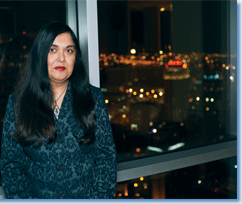 The W.E.B. DuBois Department of Afro-American Studies at the University of Massachusetts Amherst for the Institutional Award. Established over 40 years ago, the W.E.B. DuBois Department is one of the oldest African American Studies departments in the country. In 1996, this department established a pioneering doctoral program in African American Studies, emphasizing solid disciplinary training in history. As one of the referees highlighted: “Not only was this doctoral program one of the first in the country but it has since its founding graduated a record number of minority students who have gone on to tenure track positions in history throughout the country.” As one graduate of the department noted, “I learned how to think like a historian and how to be a historian in the academy …. Not only did I receive great mentorship, but the graduate program also encouraged me to mentor others, including undergraduate students whom I taught.”
The W.E.B. DuBois Department of Afro-American Studies at the University of Massachusetts Amherst for the Institutional Award. Established over 40 years ago, the W.E.B. DuBois Department is one of the oldest African American Studies departments in the country. In 1996, this department established a pioneering doctoral program in African American Studies, emphasizing solid disciplinary training in history. As one of the referees highlighted: “Not only was this doctoral program one of the first in the country but it has since its founding graduated a record number of minority students who have gone on to tenure track positions in history throughout the country.” As one graduate of the department noted, “I learned how to think like a historian and how to be a historian in the academy …. Not only did I receive great mentorship, but the graduate program also encouraged me to mentor others, including undergraduate students whom I taught.”
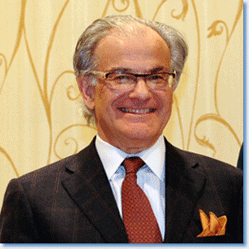 Herbert Feis Award for Distinguished Contributions to Public History
Herbert Feis Award for Distinguished Contributions to Public History
The 2012 Feis Award is awarded to Richard Rabinowitz, founding president of American History Workshop. The committee writes that Dr. Rabinowitz is a master of the exhibition as a form of public history. For more than three decades he has worked with multiple partners to develop exhibitions, often on challenging subjects, which reflect the highest standards of scholarship, play to the strength of the exhibit medium, and engage visitors in thoughtful consideration of the past. His work has transformed the way museums approach exhibit development.
Nancy Lyman Roelker Mentorship Award
The committee is pleased to recognize Peter S. Onuf, University of Virginia, with the 2012 Roelker Mentorship Award. Onuf’s mentoring relationships extended well beyond the years of student/advisor into the professional careers of his students, whether the career was teaching, scholarship, or another field. Additionally, he was equally available for advising and mentoring to those who were not his students. Over years, these connections blossomed into mutual sharing of scholarship and advice between Dr. Onuf and former students who were now established scholars in their fields. The committee was impressed with Dr. Onuf’s willingness to provide a forum for the scholarship of former students.
.png) The letters from his students reflected his devotion to mentoring his students and their respect for his contributions to aiding their research and writing capabilities. His mentorship does not stop with a student’s graduation. He brings former students into his scholarship and offers them co-authorship of scholarly publications- an invaluable boon to budding historians. The supporting letters truly reflect what mentorship means. Dr. Onuf established an environment of trust, openness, and respect and a model of mentoring that is valued by all who interacted with him.
The letters from his students reflected his devotion to mentoring his students and their respect for his contributions to aiding their research and writing capabilities. His mentorship does not stop with a student’s graduation. He brings former students into his scholarship and offers them co-authorship of scholarly publications- an invaluable boon to budding historians. The supporting letters truly reflect what mentorship means. Dr. Onuf established an environment of trust, openness, and respect and a model of mentoring that is valued by all who interacted with him.
Honorary Foreign Member
The 2012 Honorary Foreign Membership is awarded to Carlo Ginzburg, Scuola Normale Superiore, Pisa, and the University of California, Los Angeles.
Carlo Ginzburg’s scholarly career began when he was still in his twenties, with the publication in 1966 of The Night Battles, a study of an extraordinary group of peasants in Friuli, in Northeastern Italy. Based on archival records that no previous historian had explored—a hallmark of Ginzburg’s work throughout his career—the book showed how a group who saw themselves as called to defend the harvests against witchcraft were gradually transformed, by the pressure of the Inquisition, into witches.
He went on to explore the worlds of marginal groups in early modern European society, in studies such as The Cheese and the Worms, the most successful single work of microhistory ever published and a book that still fascinates and engages students, and Ecstasies: Deciphering the Witches’ Sabbath, a hotly debated study of the origins of one of Europe’s most characteristic and destructive myths. No historian has done more than Ginzburg to give voices to the forgotten actors of history.
These books would have been more than enough on their own to establish Ginzburg as one of the great historians of his generation. But he has also written works of the highest originality on religious and theological dissenters, on historians from antiquity to the twentieth century, on the history of literature and of political thought—and, above all, the history of art, in which he has become a major presence.
Ginzburg’s fearlessly interdisciplinary scholarship has earned him many distinctions: fellowships at the Wissenschaftskollegzu Berlin, the École Pratique des Hautes Études, Paris, and the Siemens Stiftung, Munich; the Aby Warburg Prize (1992); and the International Balzan Prize (2010). As a professor at UCLA and a visitor to many other American institutions, as well as through his writing, he has made, and continues to make, an enormous impact on American scholarship.
Book, Article, and New Media Prizes
Herbert Baxter Adams Prize
E. Natalie Rothman, University of Toronto, Scarborough for Brokering Empire: Trans-Imperial Subjects between Venice and Istanbul (Cornell University Press). This innovative and beautifully written study restores the Mediterranean as a vital crucible of early modern cultural difference. The book both thoughtfully responds to existing scholarship on empire and transnationalism and moves it forward with impressive research and theoretically astute analysis. Rothman’s notion of “trans-imperial subjects” moving between the Ottoman Empire and Venice provides a compelling new conceptual framework that will surely influence scholars working in disparate chronological and geographical fields.
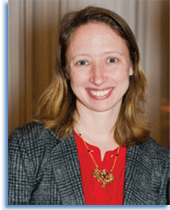 George Louis Beer Prize
George Louis Beer Prize
Tara Zahra, University of Chicago, for The Lost Children: Reconstructing Europe’s Families after World War II (Harvard University Press). Zahra has brought a startling new perspective to bear on the relationship among post-Second World War international child-relief operations, the evolution of psychiatry, and changing conceptions of the nation-state. Drawing on Czech-, Polish-, German-, French-, and English-language sources, she has crafted a compelling argument about how children and nations came to be seen as belonging to one another. This book constitutes a remarkable intellectual, methodological, and scholarly achievement in the field of European international history.
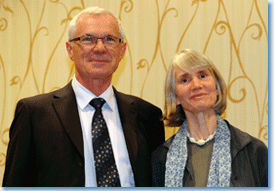 Albert J. Beveridge Award
Albert J. Beveridge Award
Rebecca J. Scott, University of Michigan, and Jean-Michel Hébrard, University of Michigan for Freedom Papers: An Atlantic Odyssey in the Age of Emancipation (Harvard University Press). Freedom Papers is a striking work of transnational research and reconstruction. Drawing on two dozen archives in eight countries, Rebecca Scott and Jean Hébrard pieced together a multi-generational family odyssey that zigzags across oceans and centuries—from Rosalie, sold as a slave in Saint-Domingue, to Marie-José Tinchant, executed by the Nazis at Ravensbrück. This compact, fresh, and vivid story illuminates the shifting meanings of race across Europe and the Americas, from the eighteenth century to the twentieth.
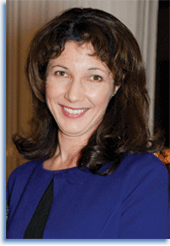 Paul Birdsall Prize
Paul Birdsall Prize
Edith Sheffer, Stanford University, for Burned Bridge: How East and West Germans Made the Iron Curtain (Oxford University Press). Burned Bridge is an innovative work, examining the influence of local populations in the broader confrontations of the Cold War. Edith Sheffer identifies the perceptual barrier developing between east and west Germans in the largest divided community outside of Berlin early into the Cold War. This experience made later physical boundaries possible, and influenced new attitudes and broader policy through the Cold War and into reunification. The book promises to be an enduring influence in many areas of study.
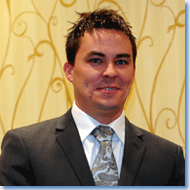 James Henry Breasted Prize
James Henry Breasted Prize
Kyle Harper, University of Oklahoma, for Slavery in the Late Roman World, AD 275–425 (Cambridge University Press). This revolutionary work overturns the notion that ancient slavery declined (or “transitioned” into medieval serfdom) during the years in question, demonstrating that the Later Roman Empire was “a slave society.” Drawing on a rich variety of sources and methodologies (including gender analysis), Harper reveals how Roman law, late antique economic structures, and conventions surrounding honor made slavery a defining feature of the Christianized Empire. This ranks among the most important books about late antiquity in decades.
John K. Fairbank Prize in East Asian History
Jun Uchida, Stanford University, for Brokers of Empire: Japanese Settler Colonialism in Korea, 1876–1945 (Harvard University Press). In Brokers of Empire, Jun Uchida uses a broad range of sources and interviews to dismantle the abstraction of “colonialism,” exposing the contradictions of Japanese rule in Korea. Her layered narrative repositions a large population of colonial settlers in relation to imperial power. It will leave readers unable to return to the binary of colonizers and colonized, at once both qualifying our understanding of the substance of imperialism and expanding the scope of its effects.
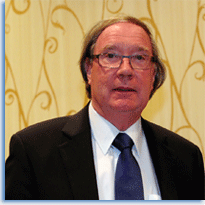 Morris D. Forkosch Prize
Morris D. Forkosch Prize
Geoffrey G. Field, Purchase College, State University of New York, for Blood, Sweat, and Toil: Remaking the British Working Class, 1939–1945 (Oxford University Press). This book challenges us to think in new ways about the social, cultural, and political consequences of the “people’s war.” It revives the study of social class as an important category of analysis in considerations of wartime experiences. The depth of the research is impressive, with the author mining archival sources along with visual culture and oral histories. Field’s focus on working-class conceptions of the nation is a perceptive corrective to traditional understandings of national identity formation.
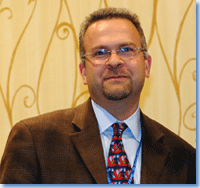 Leo Gershoy Award
Leo Gershoy Award
Ethan H. Shagan, University of California, Berkeley, for The Rule of Moderation: Violence, Religion and the Politics of Restraint in Early Modern England (Cambridge University Press). This compelling and remarkably researched book offers a powerful new outlook on the so-called “moderation” of the Church of England, from the Henrician Reformation to the late seventeenth century. Shagan argues that “moderation” identified not broadness of outlook but a particular political and ecclesiastical position of intolerance and a tendency to marginalize or persecute opposing views. Shagan opens up for debate a variety of historical issues that have too often been taken for granted.
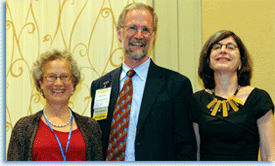 Joan Kelly Memorial Prize in Women’s History
Joan Kelly Memorial Prize in Women’s History
Gail Hershatter, University of California, Santa Cruz, for Gender of Memory: Rural Women in China’s Collective Past (University of California Press). Gail Hershatter provocatively explores Chinese women’s experience of rural collectivization through the lens of their lives as laborers, activists, and mothers. Reading family memories against state-sponsored narratives uncovers women’s invisible labor, and thereby charts a new chronology of the Chinese Revolution. Her sensitive and skillful use of oral histories, collected in collaboration with Gao Xiaoxian, places the “outer limit of revolution’s scope” front and center, offering a gendered and nuanced understanding of 1950s China.
Ruth Mazo Karras, University of Minnesota, for Unmarriages: Women, Men, and Sexual Unions in the Middle Ages (University of Pennsylvania Press). Ruth Mazo Karras offers a comprehensive and compelling analysis of the variety of opposite-sex pairings practiced by all levels of medieval society, including nobles, commoners, priests, and slaves. Combining insightful evaluation of existing studies, evocative life stories, and dazzling archival research, Karras explores why people did not or could not marry as law and custom developed in western Europe. In the process she historicizes the difficulty of defining and regulating this thing we call marriage.
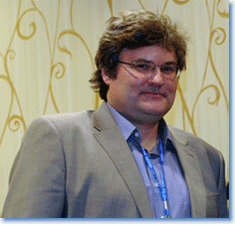 Martin A. Klein Prize in African History
Martin A. Klein Prize in African History
Bruce S. Hall, Duke University, for A History of Race in Muslim West Africa, 1600–1960 (Cambridge University Press). Is the language of race in Africa always and inevitably tied to the colonial project? Hall’s provocative work draws on a rich body of evidence, from seventeenth-century Arabic texts to the contemporary voices of slave-descendants, to craft an intellectual history of race across the West African sahel. Engaging comparative scholarship on racial formations globally, Hall demonstrates the centrality of racialized discourses of difference to histories of conflict in Muslim West Africa over three and a half centuries.
Gabrielle Hecht, University of Michigan, for Being Nuclear: Africans and the Global Uranium Trade (MIT Press). Reaching from the geopolitics of the nuclear market place to the lives of miners exposed daily to the ravages of radiation, Hecht’s extraordinary book reveals the power of “nuclear things.” A vast array of archival sources and extensive interviews with workers at the most important uranium mines in Africa undergird a powerful, historical exposé, which places Africa squarely in the global history of science and society and sets the bar for writing Africa’s postcolonial history.
Littleton-Griswold Prize
Serena Mayeri, University of Pennsylvania Law School, for Reasoning from Race: Feminism, Law, and the Civil Rights Revolution (Harvard University Press). Reasoning from Race very successfully explores race-sex analogies as fundamentally shaping the women’s rights movement from the 1940s through the 1980s. Serena Mayeri’s book also helps explain why and how women of color eventually found that race-sex analogies did not always help them when translated into formal laws and abstract notions of equality. Reasoning from Race is a great contribution to the legal history of the women’s rights movement.
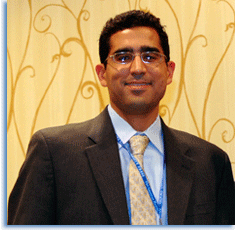 J. Russell Major Prize
J. Russell Major Prize
Malick W. Ghachem, University of Maine School of Law, for The Old Regime and the Haitian Revolution (Cambridge University Press). Malick Ghachem’s book is an innovative and beautifully written history that challenges the existing “rupture narrative.” Ghachem demonstrates that decades of reforms, originally aimed at limiting the abuses, weakened the institution of slavery and set the stage for revolution on San Domingue. He combines wide-ranging research with incisive analyses to link legal, political, and social antecedents to the post-1789 events and upheavals on the island, for a monograph that makes an exciting contribution to Atlantic world literature.
Helen and Howard R. Marraro Prize in Italian History
E. Natalie Rothman, University of Toronto, Scarborough, for Brokering Empire: Trans-Imperial Subjects between Venice and Istanbul (Cornell University Press). Rothman’s signal contribution to Mediterranean Studies takes an anthropologically inflected approach to the movements and identities of peoples in the early modern Venetian imperium. Her supple theoretical model—based on the familiar metaphor of brokerage and on her new analytical category of the trans-imperial subject—unfolds a range of Venetian archival sources, offering a thoughtfully structured, humanely argued exploration of the lives of merchant brokers, translators, converts, and the makers and users of an emerging vocabulary of identity.
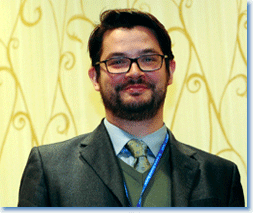 George L. Mosse Prize
George L. Mosse Prize
Sophus A. Reinert, Harvard University Business School, for Translating Empire: Emulation and the Origins of Political Economy (Harvard University Press). In his beautifully written and sophisticated book, Sophus Reinert shows that Enlightenment political economy was far more than a naïve science of “sweet commerce.” It was instead intently focused on the violence of trade, insisting that commerce was a form of jurisdiction, a way of giving laws to oneself and others. Emulation was thus an urgent need, a way of preserving your state and society from the predation of rapacious neighbors.
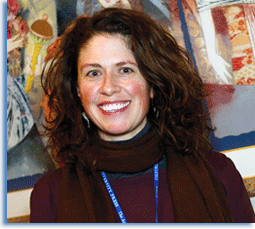 Premio del Rey
Premio del Rey
Marie A. Kelleher, California State University, Long Beach, for The Measure of Woman: Law and Female Identity in the Crown of Aragon (University of Pennsylvania Press). The Measure of Woman is a deeply researched, beautifully written treatment of women and the law at a critical moment in European legal history. Kelleher presents dynamic arguments about women’s active use, refutation, and reinforcement of gender concepts in the ius commune, the combination of canon and Roman law dominant by the fourteenth century. Her work fuses clarity of theoretical vision with close attention to individual experience and humane detail, and deserves a wide audience.
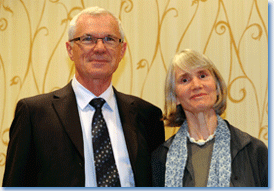 James A. Rawley Prize in Atlantic History
James A. Rawley Prize in Atlantic History
Rebecca J. Scott, University of Michigan and Jean-Michel Hébrard, University of Michigan, for Freedom Papers: An Atlantic Odyssey in the Age of Emancipation (Harvard University Press). Freedom Papers provides an expansive, original view of the Atlantic world in the long nineteenth century through the lens of one remarkable family. Following several generations the book moves seamlessly from eighteenth-century Senegambia, through Saint-Domingue and the Haitian Revolution, to Cuba, to 1848 France, to Civil War New Orleans, and beyond. It illuminates a vital age of revolutions, and the centrality of legal papers in one family’s quest for liberty.
.png) John F. Richards Prize in South Asian History
John F. Richards Prize in South Asian History
Douglas E. Haynes, Dartmouth College, for Small Town Capitalism in Western India: Artisans, Merchants and the Making of the Informal Economy, 1870–1960 (Cambridge University Press). Small Town Capitalism in Western India is a magisterial account of the process Douglas Haynes calls “weaver and small-scale capitalism.” Based on an exhaustive investigation, he makes even the technical aspects of the weaver economy lucid to the non-specialist reader. He cogently and powerfully situates his work in the larger fields of social, economic and political history. The work marshals an impressive amount of evidence, including an innovative use of oral history sources, to complicate standard South Asian models of political economy.
James Harvey Robinson Prize
Reading Like a Historian: Teaching Literacy in Middle and High School History Classrooms (Teachers College Press); authors Sam Wineburg, Stanford University; Daisy Martin, Stanford Center for Assessment, Learning and Equity; and Chauncey Monte-Sano, University of Michigan. Reading Like a Historian encourages students’ critical thinking about gender, race, point of view, causation, and other key issues that form part of the historian’s craft. A compilation of eight lessons filled with photocopy-ready primary sources and accompanying worksheets, this useful volume will prove an indispensable complement to novice and experienced teachers of history alike.
.png) Wesley-Logan Prize
Wesley-Logan Prize
Erik S. McDuffie, University of Illinois at Urbana-Champaign, for Sojourning for Freedom: Black Women, American Communism, and the Making of Black Left Feminism (Duke University Press). This elegantly written study of black leftist women activists in the mid-twentieth century urges consideration of these women as an important community within a wider community of national and global activists who fought for racial justice, economic justice, and gender equity through socialist and communist organizing in this era. The treatment of these women as a collective group is innovative and calls for serious reassessment of their significance within those larger movements and beyond.
Albert Corey Prize
Karen A. Balcom, McMaster University, for The Traffic in Babies: Cross-Border Adoption and Baby-Selling between the United States and Canada, 1930–1973 (University of Toronto Press). In her carefully researched study, The Traffic in Babies: Cross-Border Adoption and Baby-Selling between the United States and Canada, 1930–1972, Karen Balcom analyses how social workers in both countries collaborated across the international border to reform, and at times create, policies addressing “the seemingly private decision to relinquish or adopt a child” which is simultaneously “a highly charged and often deeply contested public act.” By piecing together a complex array of records from repositories across North America, The Traffic in Babies reconstructs the challenges faced by reformers as they dealt with transjurisdictional policies, and the emotionally fraught issues of adoption, and in turn exemplifies the importance of well-crafted transnational history. The Albert Corey Prize was presented at the Canadian Historical Association’s annual meeting at the University of Waterloo and Wilfrid Laurier University in May 2012.
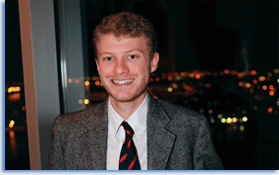 Raymond J. Cunningham Prize for the Best Article by an Undergraduate
Raymond J. Cunningham Prize for the Best Article by an Undergraduate
T. Fielder Valone, currently a doctoral student at Indiana University (AB, University of North Carolina, Chapel Hill, May 2011), for “Destroying the Ties that Bind: Rituals of Humiliation and the Holocaust in Provincial Lithuania,” in traces: The UNC-Chapel Hill Journal of History 1 (Spring 2012): 90–114. Valone makes creative use of an understudied collection of survivor testimonies to analyze a specific, localized instance of Holocaust aggression in rural Lithuania. By unpacking a few cases of ritual humiliation, he demonstrates the importance of Lithuanian Christian anti-Semitism, thus contributing to the historiographical discussion on the role of grassroots agency in perpetrating the Final Solution. His lucid writing captures the horror of the events without losing sight of the explanatory obligations of the historian.
William Gilbert Award for the Best Article on Teaching History
Avishag Reisman, Teachers College, Columbia University, for “The Document Based Lesson,” Journal of Curriculum Studies 44, no. 2 (April 2012): 233–64. Avishag Reisman has provided a model for document-based learning that can be widely used to improve the quality of historical instruction in K–12 schools, and used with diverse students, from the extremely talented to the disadvantaged. A history teacher first in an inner city New York and then a San Francisco high school, Reisman struggled over how to teach history in a source-based way—that encouraged creative thinking and inquiry-guided learning—to students who were below grade level—sometimes far below grade level—in their reading skills. Her “Reading Like an Historian” curriculum uses “scaffold instruction” to give students the support they need—from excerpted documents staged to different reading levels, sentence starters, and graphic organizers—to fully analyze and understand historical documents. She tested the ability of participating students to do historical analysis against a control group, measuring significant improvement among participants.
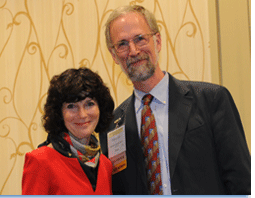 John E. O’Connor Film Award
John E. O’Connor Film Award
The Loving Story, Nancy Buirski, director; Nancy Buirski and Elisabeth Haviland James, producers; Augusta Films. The Loving Story documents the 1967 landmark Supreme Court decision which overturned state laws banning interracial marriages. Nancy Buirski’s film chronicles Richard Loving and Mildred Jeter’s attempt to attain legal recognition of their relationship from the state of Virginia. The film employs archival footage to develop the racial milieu of Virginia and the South during the early 1960s, as well as home movies and court testimonies to keep the Loving family at the center of the controversy.
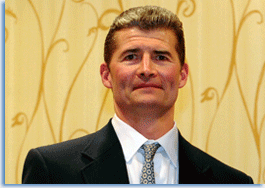 Roy Rosenzweig Prize for Innovation in Digital History
Roy Rosenzweig Prize for Innovation in Digital History
The Clarence Darrow Digital Collection, University of Minnesota Law Library. The Clarence Darrow Digital Collection for the first time puts together hundreds of critical primary sources about a key figure in American and legal history. Fascinating personal letters from Darrow to family members as well as famous figures, joined with direct access to legal databases, make the site an essential location for research. Clear contextualization also helps to situate Darrow and his seminal cases within the broader history of the United States.
Sharon Tune is the AHA’s director of meetings and administrative operations.
All photos are by Marc Monaghan.
Tags: AHA Activities Annual Meeting 2013 Annual Meeting Member News
Comment
Please read our commenting and letters policy before submitting.






